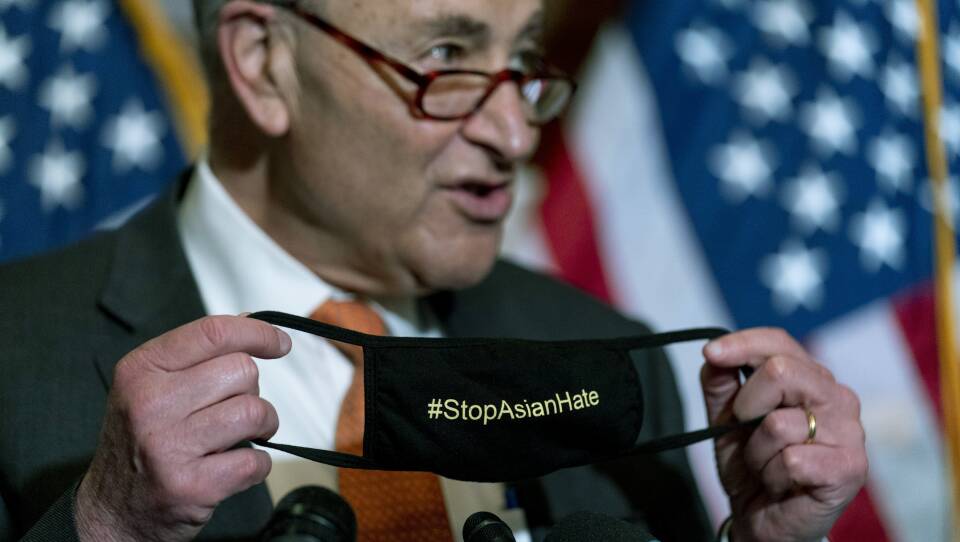Following the near-unanimous passage of anti-Asian hate-crime legislation in Washington last week, writer and educator Saida Grundy joined Boston Public Radio on Tuesday to expand on her recent article for The Atlantic about the finite impact of prosecuting clearly defined hate crimes.
Grundy, an assistant professor of sociology and African American studies at Boston University, began by drawing a distinction between the modern-day focus on hate crimes and legislation like the Dyer Anti-Lynching Bill of 1918. In that instance, she explained, lawmakers were seeking to bring the lynching of Black Americans “into the judicial landscape to say, ‘This is a crime that needs to be acknowledged.’”
Modern hate-crime laws, she argued, serve a more ornamental function.
“Here’s what hate-crimes [laws] actually do,” she said. “They take crimes that we already prosecute and already would get convictions on, and they are sort of add-ons.”
She used the example of murder: “You’re already going to get life for muder, right? You’re already going to get an extensive sentence for any sort of felony murder. So what is a five-year add on for that? What’s a ten year add-on?”
Instead of preventing future acts of hate and violence, Grundy argued that these laws bolster America’s already-thriving prison system.
“We have the most hyper-punishment culture in the world,” she said. “What hate-crime [legislation] does is it allows us to be even more draconian with what is already an abusive penal system.”
Further muddying the issue, Grundy said, is the way in which hate-crime laws put responsibility onto the U.S. legal system to establish and define what is and isn’t a hate-crime.
“Police have been a danger to these communities, and now you’re putting in their hands to say, ‘Oh, well I don’t think that was racist,’” she said. “Do you think that’s progressive?”
Rather than focusing on increasing the sentences of people who commit hate crimes, Grundy said the solution is for legislators to support marginalized communities where they need it.
“Let’s look at trans women,” she said. “Trans women, frequently trans women of color, tend to have housing insecurity. If you don’t want them to be attacked by violence, give them housing security, right? Get them off the street.”
“You cannot expect the people who have not kept communities safe to keep communities safe," she continued. "What you can say is we’re actually going to change the structural issues that make these communities vulnerable in the first place. That would be a progressive approach.”
Grundy is an assistant professor of sociology and African American studies at Boston University. Her forthcoming book is "Manhood Within The Margins: Promise, Peril And Paradox At The Historically Black College For Men."








